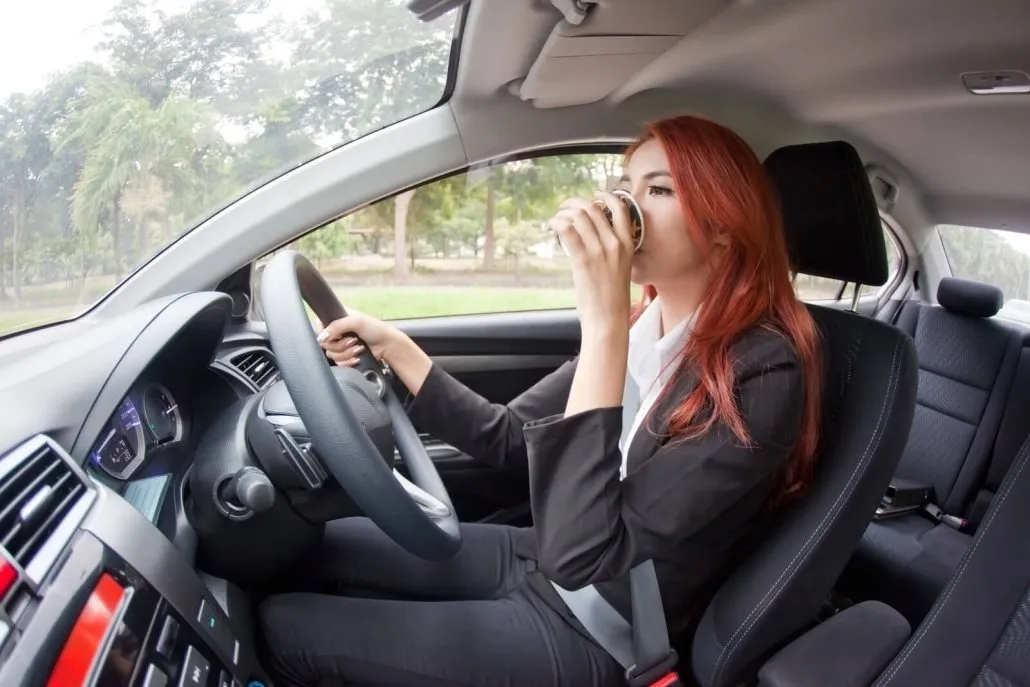We live in a busy society where multitasking is commonplace. Isn’t it true that the more you can accomplish at once, the more you achieve? The best way to be productive is not only to juggle multiple responsibilities at once. This applies to driving as well. Many people know how dangerous it is. Despite that they are still trying to answer calls, check emails, and keep the kids from being too noisy in the car while thinking about what they will make for dinner.
It is not a strength to multitask – it fatigues the brain as it requires it to switch back and forth between tasks, resulting in less quality and efficiency. Drivers often think they can listen to music while driving and talk on the phone at the same time. The brain cannot concentrate on multiple tasks at the same time, so driving while doing any other task is the most dangerous thing you can do.

What is multitasking?
To understand what multitasking while driving means, the American Psychology Association describes it as:
- Performing two tasks at once
- Moving from one task to another
- Performing several tasks simultaneously.
Researchers refer to people who perform several things at once, such as texting, listening to music, and reading, as “heavy multitaskers.”
As a result of switching from one thing to another, you may think that multitasking is more productive.
Key statistics on distracted driving
- 3,142 people were killed by distracted driving in 2019, according to National Highway Traffic Safety Administration. In 2019 there were 3,142 people killed and an estimated additional 424,000 people injured in motor vehicle crashes involving distracted drivers.
- Approximately 8.7% of all crashes killed by distracted drivers were caused by distracted driving.
- 25% of distracted drivers in fatal crashes are between the ages of 20 and 29, according to the Centers for Disease Control and Prevention.
Distracted driving deaths per year and multitasking while driving statistics
- The NHTSA estimates that distracted driving causes about 3,000 deaths annually: 3,142 deaths in 2019, 2,628 deaths in 2018, and 3,003 deaths in 2017.
- Furthermore, distracted driving results in about 280,000 injuries each year: 276,000 in 2018, 285,000 in 2017, and 295,000 in 2016.
- There are about 920,000 total crashes (including fatalities and injuries) caused by distracted driving each year: 938,600 in 2018, 912,600 in 2017, and 905,000 in 2016.
How does it affect your brain?
In their 2001 experiment, Joshua Rubinstein, Ph.D., Jeffrey Evans, Ph.D., and David Meyer, Ph.D., found that the human brain’s executive control processes consist of two stages:
- By shifting goals, you choose to do one task now over another
- By activating rules, you turn off the rules for one and turn on the rules for another.
This may be due to limited cognitive resources. Many brain networks contribute to our decision-making whenever we set out to accomplish a task. This behavior includes:
- Goal setting
- Finding out what information we need
- Ignoring unnecessary distractions.
Switching between tasks is the goal at both stages. The outcome depends on the complexity of your situation and the environment in which you are working. It also takes time to move from one job to another, especially if you do so repeatedly. Talking, texting, and watching TV at home do not pose a risk at all, but other situations can put you at risk, like driving.
What happens in our brain when we multitask?
When you need to concentrate on a task, you activate the prefrontal cortex part of your brain. It is divided into the right and left sides. They work together to help the brain focus on a single task at a time. When two tasks are involved, each side focuses on a single one. During a study at a Parisian university, researchers discovered that the brain splits in half whenever someone tries to complete two tasks at once. Essentially, if you are doing any other task while driving, your brain struggles to process the signals and the two frontal lobes have to divide the work. Researchers added a third task to the participants’ list, and they found that one of the three tasks they were asked to complete had been forgotten.
The study’s lead scientist, Etienne Koechlin, claims we may have difficulty juggling more than two tasks due to the fact that we only have two frontal lobes.
Furthermore, the study found that it is easier to eat, check your email, and watch TV at the same time – since these tasks do not require as much brain activity as driving. In essence, these tasks are done on autopilot and do not require a lot of mental effort.
Dr. Adam Gazzaley says multitasking affects our performance because our brains are required to process multiple tasks simultaneously while switching between them. Because your brain has to divide up in order to perform these tasks, you cannot multitask well. You have to be very attentive when driving, not only because you are subject to other people’s choices, but also because you are accountable for your actions. In order to ensure everyone’s safety, it is vital that we concentrate solely on the road and not overtax our brains by juggling multiple tasks. If you do so, you increase your chances of crashing dramatically.
When the brain receives too many information signals, the posterior lateral prefrontal cortex takes over. Rather than analyzing these signals simultaneously, the posterior lateral prefrontal cortex lines them up in order instead. In conclusion, multitasking isn’t reliable since the posterior lateral prefrontal cortex (pLPFC), when overwhelmed with information signals, only complies with two of the pieces of information. What kind of attention are you giving to the road if you are driving while texting a friend, changing the radio station, and looking for a place to go to dinner?
You can only retain information for a limited period of time if you interrupt one task to perform another. It would be hard to negotiate a phone call while remembering directions, causing confusion and disruption. The death of someone as a result of negligent behavior caused by a car accident is one of the most common causes of wrongful death, according to an Alpharetta car accident lawyer. You are neglecting both your own safety and that of everyone else on the road by not responding to a text message in a timely manner. Multiple tasks at once result in a 40% loss in efficiency, so why put yourself at risk of a car accident by trying to juggle multiple activities at once?
How does multitasking affect drivers?
Multitasking on the road may seem easy for experienced drivers, but driving requires a full attention span. Your reaction time is slowed when you switch from one thing to another. A few seconds can seem insignificant, but they can cause an accident or worse for you, your passengers, and other drivers.
Multitasking while driving can contribute to accidents. Despite the fact that some vehicles come with hands-free technologies capable of answering calls and reading texts, talking on the phone can cause drivers to miss up to 50% of their surroundings. As a result of errors in the message, other features, such as voice-to-text, are distracting. Among the many distractions on the road are cell phone use, passengers, children, as well as eating, and drinking. When you drive more, you are more distracted. So, stay safe on the road by eliminating distractions, decreasing multitasking, and staying focused on the road.
How to break the multitasking habit
It is possible to reduce the negative effects of multitasking by making some changes that will improve productivity and efficiency. Take a minute to assess what you are trying to accomplish next time you find yourself multitasking. Next, determine which task needs your attention first. Try these tips:
- Don’t juggle more than one task at a time. Whenever possible, try to combine automatic tasks, like folding laundry, with tasks that require more focus, like having a conversation.
- Rather than switching between tasks constantly, focus fully on one task for 20 minutes before moving on to the next.
- Do your complex tasks in batches. Schedule a set time in your day to deal with distractions, such as checking your email or engaging in another activity. If you group similar tasks together and schedule a time to accomplish them, you can free your mind to handle other tasks.
- Avoid distractions. Perhaps you should find a quieter place to work, turn off your phone, and turn off your alarm and notifications.
- Become more mindful. You may be able to notice times when you’re multitasking if you add mindfulness to your daily routine. You can also improve your ability to concentrate and focus on one thing at a time by practicing mindfulness.
Conclusion
In conclusion, multitasking while driving is a dangerous activity that can severely impair your ability to operate a vehicle safely. If you must multitask while driving, make sure to limit your distractions as much as possible and avoid activities that require you to take your eyes off the road.
